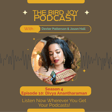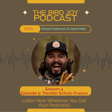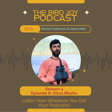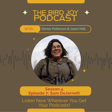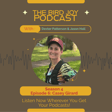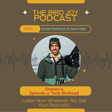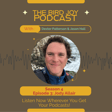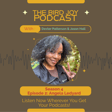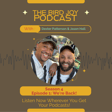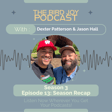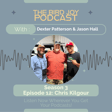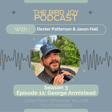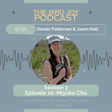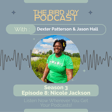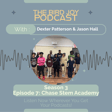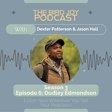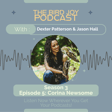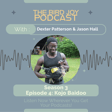
The Art of Nature with Shane Alden
In this inspiring episode of The Bird Joy Podcast, Jason and Dexter sit down with Shane Alden Edwards, better known online as The Wild Dryad. A self-taught illustrator and botanist, Shane has captured the hearts of over half a million nature lovers through his vibrant educational content centered on plants, ecology, and outdoor learning.
From early creative roots in aquaponics and drawing, to leading community workshops in partnership with The Conservation Foundation and The Field Museum of Natural History, Shane shares how art and education can work together to nurture a deeper relationship with the natural world.
We talk about the joy of native plants, the importance of experiential learning, and how community and creativity can foster healing for both people and the planet.
Topics Covered:
- Shane’s journey into botany through art and aquaponics
- How acting and improv shape his unique teaching style
- Building inclusive, community-centered environmental education
- The importance of native plants for birds, biodiversity, and ecosystems
- Memorable experiences studying ecology in North America and Southeast Asia
- What it’s like to grow an online community of over 500,000 nature lovers
- Tips for beginners who want to start exploring plants and botany
- Hopes for the future of conservation, education, and environmental justice
- Finding joy through connection with plants and nature
